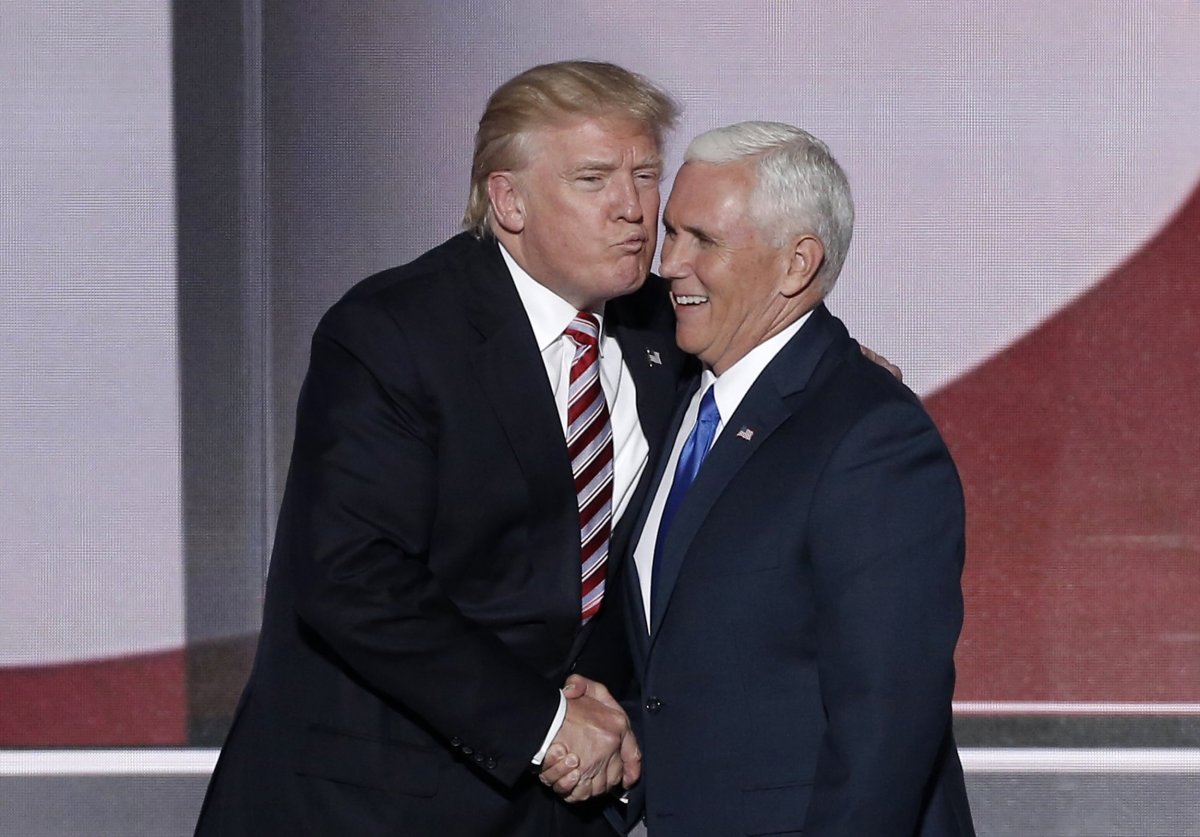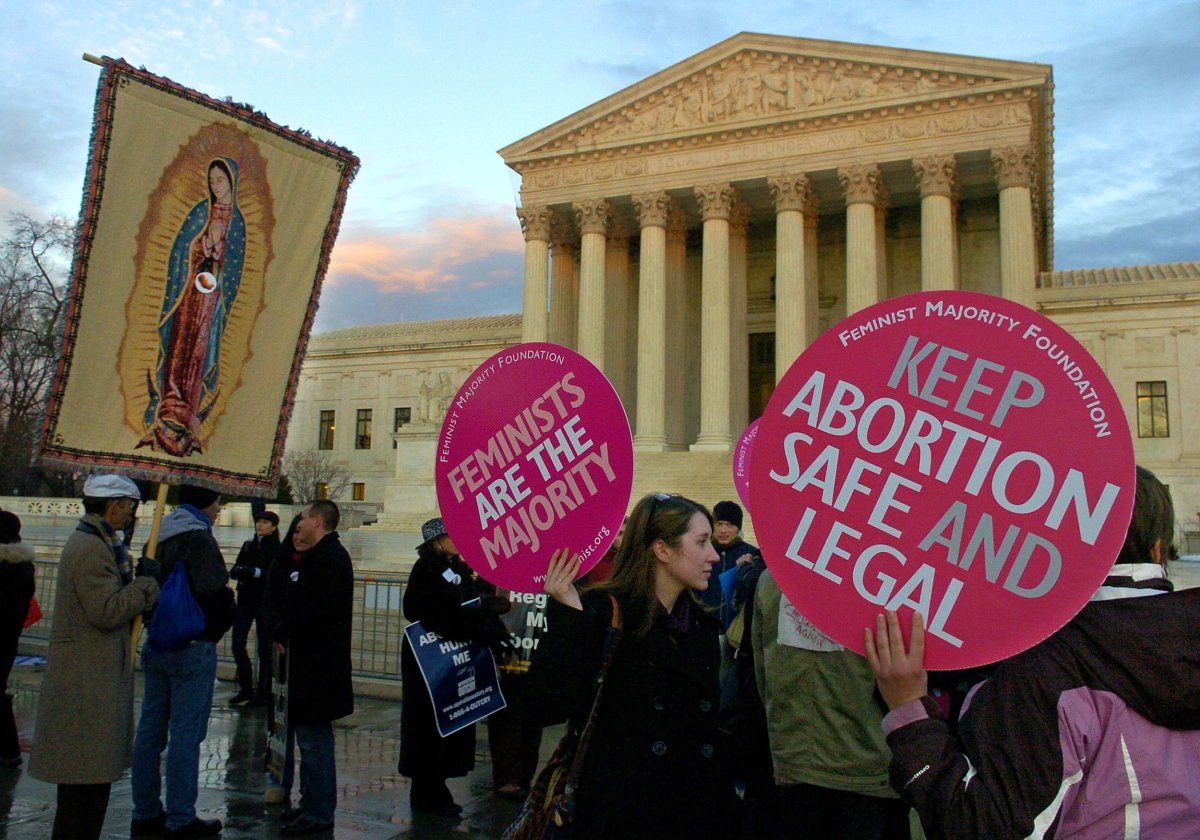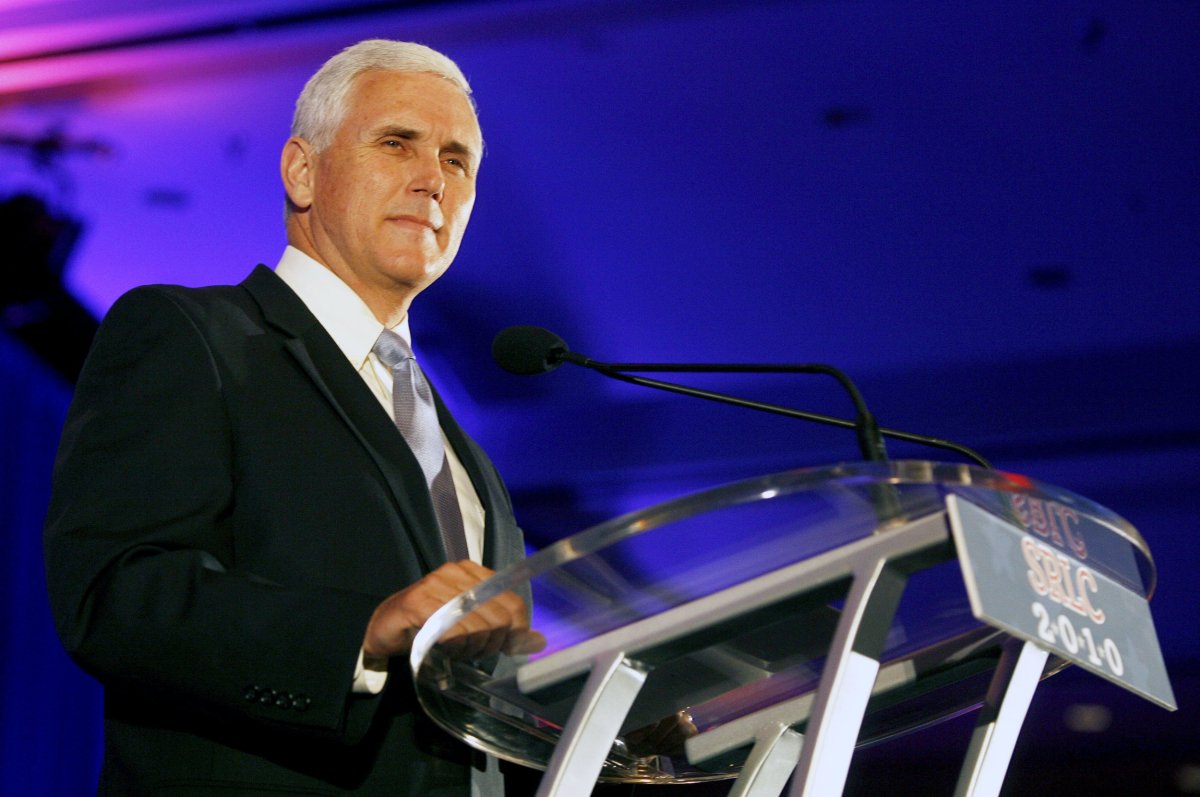Donald Trump has suffered historically low approval ratings of between 36-43 percent throughout his presidency. From James Comey to Michael Flynn, various figures have had their reputations tarnished by the current administration. But one person has surprisingly grown in popularity since working with the president—Mike Pence.
A recent poll found more Americans have a favorable view of Vice President Mike Pence than those who approve of President Donald Trump's work in office. In fact, Pence's recent performance in polls has experienced a significant boost when compared to results several months ago.
The former governor of Indiana is a heartbeat away from being commander in chief and according to those close to him, he has long harbored ambitions for the top seat in the White House.
On the surface, Pence could not be more different than Trump. An old-fashioned Republican conservative, the 59-year-old has been a quiet, but loyal, presence in the Trump White House so far. So if he did take the reigns of power, just how different would he be to the current president?
To get a better idea of what a Mike Pence administration would look like, Newsweek spoke to journalist Andrea Neal, author of the biography Pence: That Path to Power.
How Pence would differ from Trump
"I don't think his policy initiatives would differ that much. But in terms of his presentation he would be completely different from Donald Trump because there are no signs of wanting to grab the limelight," said Neal.
"We're not going to see a president who uses his Twitter account to communicate. Mike Pence is going to use more traditional, perhaps more old-fashioned forms of communication. Mike Pence always thinks before he speaks.
"He is very restrained in what he says publicly. He wants to present himself as a model of humility. He's not going to be boorish or thuggish. He's going to act like a gentleman. We don't see any personal scandals in Mike Pence's life."

Roe vs. Wade
"Some have said he would be even more dangerous than President Trump because he is going to wage a war on women and reproductive rights. I don't think he shows a history of trying to impose his moral world order on government but he certainly has chosen some select issues where his faith takes center stage," said Neal.
"He opposes abortion. He has often said he wished Roe v. Wade could be overturned when he was in Congress. He's always opposed government funding of Planned Parenthood because the institution performs abortions.
"I feel like we would see him very vocal on life issues but otherwise not imposing his will on the government. I'm certain he would support a Supreme Court ruling overturning Roe v. Wade [but] not with the notion of the federal government then suddenly banning abortion.
"The United States could conceivably end up with what we had prior to Roe v. Wade which is kind of a patchwork of different laws in some states where it was fully legal, some where it was was partly legal and some where it was was prohibited."

Trade
"I think we can presume that he is more of a free trader. [In 2002] Pence's Democratic congressional opponent Melina Fox made an issue of NAFTA on grounds such that trade agreements took jobs from working class Americans," said Neal.
"Pence of course supported NAFTA, but as vice president publicly has appeared supportive of President Trump's tariff policies and effort to rewrite NAFTA. The sixth district had a lot of manufacturing, including automakers, so the issue resonated with Democrats, but it was a predominantly GOP area, and Pence won handily.
"Based on his congressional record, a president Pence would most likely disagree with President Trump on trade policy; he has always described himself as a free-market Republican. On the other hand, there does seem to have been a partisan shift as Republicans seek to attract more blue collar support—a winning strategy for Mr. Trump at least."
Government spending
"When he was in Congress he was always fighting for lower taxes and reducing the budget deficit and spending less government money often at his own peril within the Republican caucus," said Neal.
"For example in 2003 when the Republicans were in control and President Bush was wanting to add a prescription drug entitlement to Medicare. Pence fought tooth and nail and led the caucus members that were fighting it. Ultimately they didn't win but Pence was was willing to take on his own party for that principle of limited government.
"I think he gets more headlines for his social conservatism but it's really his fiscal conservatism that has made him so popular in Indiana. So I think that that would be priority one—streamlining the federal government, continuing deregulation, shrinking government, returning power to the States."

The Middle East
"Pence is going to be very pro-Israel and he's quite likely not going to take the Palestinian side," said Neal.
"On the other hand he's shown an ability to compromise and certain compromises are no doubt going to be necessary to achieve peace in the Middle East and people who think he just takes that sort of extremist point of view, I think you're misinterpreting his record."
Climate change
"I think we can assume that he would continue the Trump policy in that regard and we can go all the way back to some early writings from his early congressional races when he could be described as sort of debunking or describing as myth the notion that fossil fuels are the cause of climate change and he himself attributes it to natural phenomena," said Neal.
Working with Democrats
"He's quoted as saying in my book that if you're not willing to listen to the other side then forget democracy," sadi Neal.
"So I think he would view himself as more of a healer and more of that olive branch kind of person…similar to John McCain in the sense that when he was in Congress Pence had good friends on both sides of the aisle and worked well with representatives from the Democratic Party.
"One example would be the federal Medicaid program. While he didn't like some of the aspects of President Obama's program, he was able to work with the Obama administration and achieve a waiver so Indiana could implement a program called HIP: Healthy Indiana Plan Point 2.0. And he negotiated personally with President Obama on the tarmac of an Indiana airport to achieve that. He is willing to compromise. And I imagine that that would continue under a Pence presidency."
Uncommon Knowledge
Newsweek is committed to challenging conventional wisdom and finding connections in the search for common ground.
Newsweek is committed to challenging conventional wisdom and finding connections in the search for common ground.
About the writer
To read how Newsweek uses AI as a newsroom tool, Click here.








